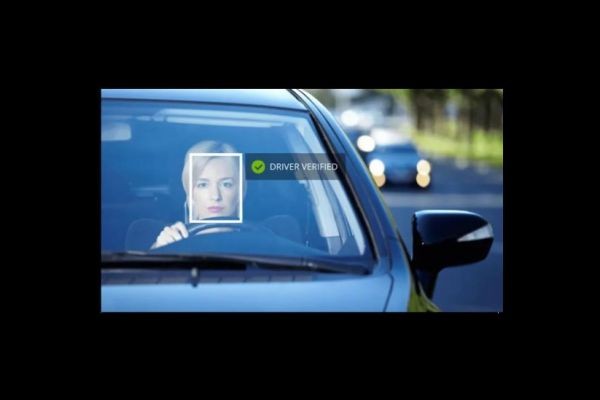05/01/2024 - By Brian Shilhavy - Editor, Health Impact News
Source Article - The Government is Tracking You Through Your Vehicle as You Drive if You Have a Newer Vehicle Connected to the Internet (healthimpactnews.com)
I have been warning our readers for the past few years that the Government has the ability to track you through your vehicle if you own a later-model vehicle that is connected to the Internet.
But today, we now know that this is not just a theory, but that it actually has been happening, as two U.S. Senators have discovered that eight automakers will give up users’ location data to police without requiring a court-issued warrant.
From PC Magazine:
Senators: Car Companies Are Giving Location Data to Police Without a Warrant
A pair of US senators have discovered that eight automakers will give up users’ location data to police without requiring a court-issued warrant.
Sens. Ron Wyden (D-Oregon) and Edward Markey (D-Mass.) publicized the finding in a Tuesday letter that urges the Federal Trade Commission to investigate the car makers: BMW, Kia, Mazda, Mercedes-Benz, Nissan, Subaru, Toyota, and Volkswagen.
The senators allege the companies “deceptively pledged that they would insist on warrants or other court orders before turning over location data” from customers to the police. In 2014, the auto industry pledged to uphold privacy principles, which included only handing over such sensitive location data to law enforcement when a warrant or court-issued order was provided.
However, an investigation from Wyden and Markey finds that only six car companies—Ford, GM, Honda, Stellantis, Tesla, and (to a lesser extent) Hyundai— require police to submit a warrant when requesting users’ location data.
The eight other automakers will turn over location data to government agencies “with a mere subpoena, which does not require a judge’s review and approval,” the senators write to the FTC.
“These companies are not just less protective of their customers’ privacy. Their policies directly contradict the public commitment the companies made and invited the FTC to enforce. As such, these companies may have engaged in deceptive conduct, which is prohibited by Section 5 of the FTC Act,” the senators allege.
“Vehicle location data can be used to identify Americans who have traveled to seek an abortion in another state, attended protests, support groups for alcohol, drug, and other types of addiction, or identify those of particular faiths, as revealed through trips to places of worship,” the senators note.
Another concern is that hackers or foreign spies could access the same location data from today’s connected cars to snoop on consumers. The senators’ letter says Hyundai “routinely collects and retains vehicle location data for up to 15 years, Toyota for up to 10 years, and Honda for up to 7 years.” (Full article.)

We already knew that these car companies tracked and stored this data, as last September I published a report published by the Mozilla Foundation on every brand of car sold in the U.S. and reported:
“All 25 car brands we researched earned our *Privacy Not Included warning label — making cars the official worst category of products for privacy that we have ever reviewed.”
They concluded that your car spies on you more than your cell phone and smart home devices. See:
Your Car is Spying on You MORE than Smart Home Devices and Cell Phones
This announcement by the Senators follows other recent announcements that the government has passed legislation that new cars in the future must be outfitted with a “kill” switch that allows law enforcement to disable your vehicle.
Of course the technology to give government agents (and others) the ability to hack your car and disable it has been around at least since 2015, as this report published back then and picked up by several corporate media outlets demonstrated:
Big Tech and Big Automotive are already developing and will soon be installing cameras into vehicles that will record you as you drive, scanning your eyes and head motions to allow the government to turn off your vehicle if they deem you are violating any of their orders.
The automotive industry is moving quickly now to take away one of the last freedoms most Americans still have: the ability to get in one’s own vehicle and drive anywhere one wants, whenever they want to.
In an announcement this week, Biometric Update reported that almost all of the major automakers have either recently announced or have already patented facial recognition technologies that will require drivers to supply a scanned image of their faces in order to use their autos in the near future.
See:
Car Manufacturers to Require Face Recognition to Drive Their Vehicles in the Near Future
This is happening in Canada as well:
A Canadian company is creating anti-drunk driving technology that monitors your eye movements and alcohol levels via cameras and infrared sensors that can trigger a kill switch in your car.
As reported by Drive.com, at the 2024 Consumer Electronics Show, the Canadian company Magna International unveiled the latest in drunk driving prevention tech.
This includes a camera that monitors a driver’s eye and head movements 24/7 to see if they may be intoxicated or drowsy, as well as infrared sensors that can measure and analyze the breath of a driver to determine the carbon dioxide and alcohol levels to calculate whether they’re above the legal limit.
If your car decides you’re over the legal limit, your car shuts down.
Despite ostensibly being intended to increase safety, the myriad ways that this sort of technology could be expanded, manipulated, and abused are obvious—not to mention it could get things wrong even when it does work as advertised. But that isn’t stopping countries around the world from mandating this technology be installed in all new vehicles.
This technology will soon be required in the US.














